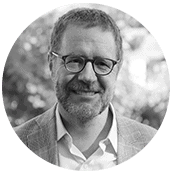Newsletter
Suscríbete a nuestro Newsletter y entérate de las últimas novedades.
https://centrocompetencia.com/wp-content/themes/Ceco



*This column reflects Felipe Irarrázabal’s speech at the «Cafecito» meeting (April 9), organized by White & Case LLP (Daniel Sokol) in Washington, which brings together Latin American practicing attorneys, universities, and competition law centers.
First of all, I want to thank Danny (Sokol) for this event that brings the Latin American community together year after year in Washington. Also, to White & Case and you for agreeing to come here. We know that your schedules are full of meetings and that we all ended Friday exhausted and eager to return to our countries.
I would like to take this opportunity to make a couple of reflections. It’s going to be short, don’t panic. I want to reflect on the challenges and opportunities we have as a free competition community in Latin America.
It is not easy to be a competition authority in our countries. The public world -all the executive branch, Congress and the Justice system- is tough. The public world in Latin America is especially tough. Governments are always under pressure for quick and profound results. Populism is around every corner, as is the risk of corruption. The market economy is new in our territories and is not understood by the majority of citizens. The art of surviving, for example in front of Congress, is more difficult than eating spaghetti with a spoon. Antitrust lawyers, moreover, speak jargon that is little understood, and our technique cannot be explained with a couple of plain phrases. That makes media journalists desperate. In addition, competition authorities often do not know how they are doing it. Exaggerated flattery is heard. Underhanded criticisms are heard. The competition authority often feels, I think, like a naked king in Hans Christian Andersen’s fairy tale. A serious competition authority, too, feels alone, especially if the context of the public sphere shows signs of decline, as is often the case in our countries.
«We cannot lose confidence and fall into malaise and mistrust. It is the most important asset. It’s what makes it possible to move forward. We need empowered authorities that are reasonable and predictable. We need active and courageous practitioners, who defend the rights of their clients with technical arguments».
Nor is it easy to be an antitrust lawyer. Clients tend to be overwhelmed with the openness of our laws. The vagueness of competition law, which is itself one of its virtues, is not understood in a continental legal system. Competition cases take time to resolve, and clients have to be very patient. The technical parameters, which usually come from the US and Europe, have been in question in recent years. No one knows what the natural demarcation of free competition is concerning other protected legal goals. It’s hard to say for sure what can or can’t be done, and that makes clients nervous. It also happens that there are crazy cases. Cases that do not have any logic or rational explanation. Cases that are unpredictable and not aligned with previous cases.
Thus, it is difficult for the competition authorities to work, and it is also difficult for practicing lawyers to do so. There is something more difficult, however: the interaction between competition authorities and practitioners. The magic word that allows for a reasonable discussion of every antitrust case is confidence. Trust allows competitive actors to cooperate. Trust helps for the winning of the best argument, with hard evidence, in an appropriate tone that should be used when discussing deep and complex topics. The problem is that trust is a limited asset in our countries. The public world distrusts the private world. The private world distrusts the public world. This phenomenon of mistrust is flooding the practice of competition even in countries such as the US and Europe. The light here (both in the US and Europe) is not that clear nowadays, with proven criteria and technical arguments, as was the case a few years ago.
One contribution, I think, that helps to build confidence is to conduct perception surveys of practicing lawyers and ask the authorities what they think of practicing lawyers as well. That survey, which is an original instrument that has not been used in other parts of the world as far as we know, helps to create a bridge between authorities and practitioners. Practitioners are subjected to a set of over 50 questions about the performance of authority. By answering these questions, you create an awareness of what is important to measure. Surveys are processed on an aggregate basis and anonymity is 100% protected, thanks to the fact that GWU (and before Deloitte) are the only ones who know what each lawyer answered. Surveys also allow the authorities to know what they are doing well and what they are doing fairly or wrongly. That knowledge is based on an aggregate number and not on hallway gossip. If the survey is done from time to time, trends in performance can be analyzed. It is possible to know whether the authority is doing better or worse in some aspect of the practice. The information generated by the results of these surveys should help to make authority serious and practitioners demanding. It is also important for the authority to evaluate the practitioners and this year we included questions to the authorities, the results of which you can see in the survey.
The results of CeCo and GWU’s 2024 survey are already available since last Wednesday on the CeCo website. This year we included 7 countries (Argentina, Brazil, Chile, Colombia, Ecuador, Mexico, and Peru) and asked practitioners in each country essentially the same thing, allowing comparisons to be made between countries. It is not a bad thing, I believe, that a certain amount of competition is being created among the competition authorities in our region. If that’s good for business, it should also be good for policymakers.
I don’t want to analyze the results of the 2024 survey. We are going to have a meeting this Friday at GWU to do so in detail and all of you are welcome to attend that meeting.
I would like to conclude, however, with one last thought. If one looks at the aggregate results of the region, one has the feeling that there is a strong community of practitioners here and that the evaluations, except for certain aspects to be improved, are positive in many aspects. There is also a good appreciation, although there are also exceptions, of the authority towards the practitioners of each country. I think, and I hope I’m not mistaken, that in general there is a good deal of confidence between authorities and practitioners. It could be better, it’s true, especially in certain countries.
We cannot lose confidence and fall into malaise and mistrust. It is the most important asset. It’s what makes it possible to move forward. We need empowered authorities that are reasonable and predictable. We need active and courageous practitioners, who defend the rights of their clients with technical arguments.
We need to continue to deepen a healthy, direct, and honest dialogue between authorities and practitioners, which will increase levels of confidence.
Thanks a lot and enjoy Washington!